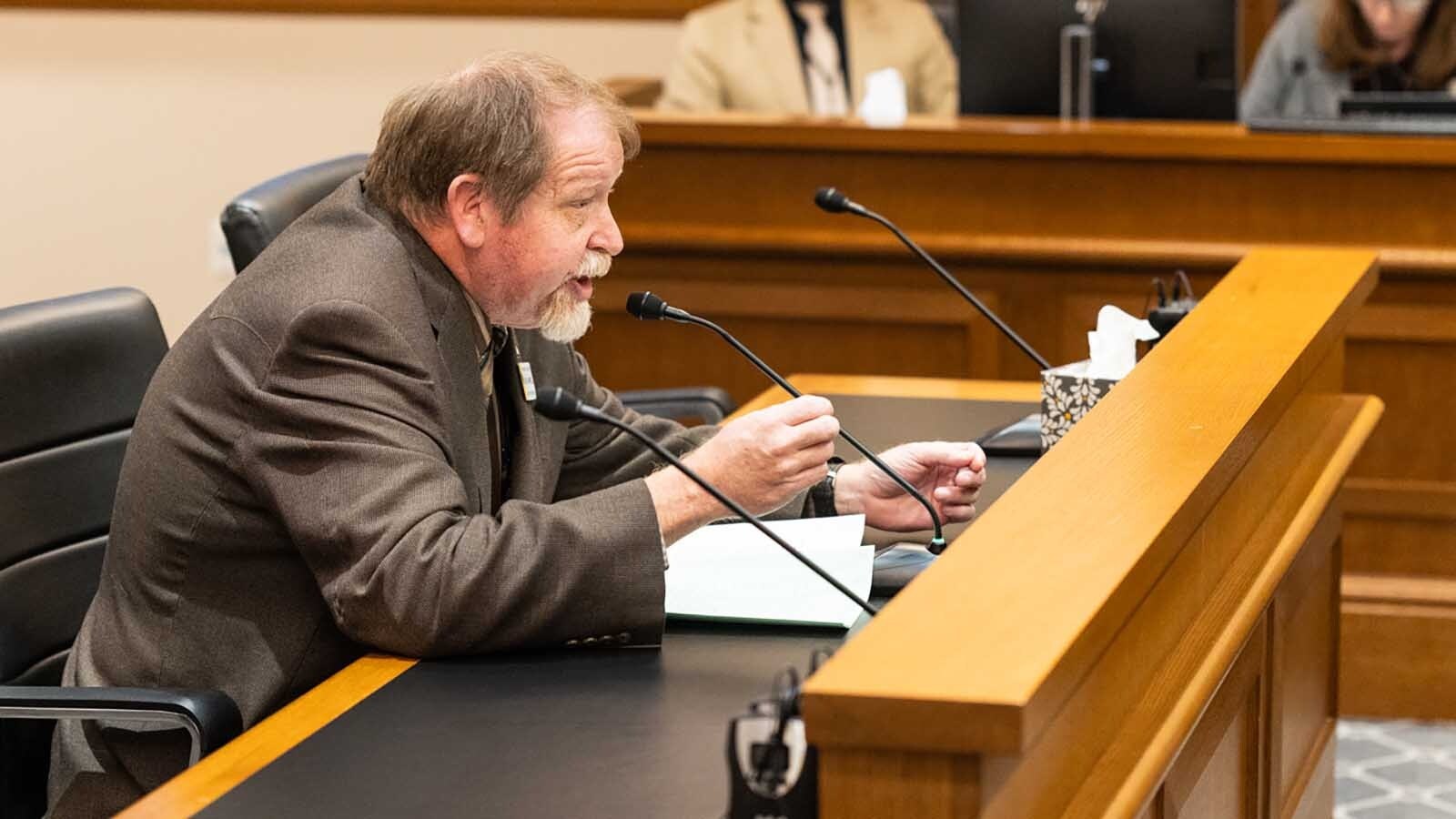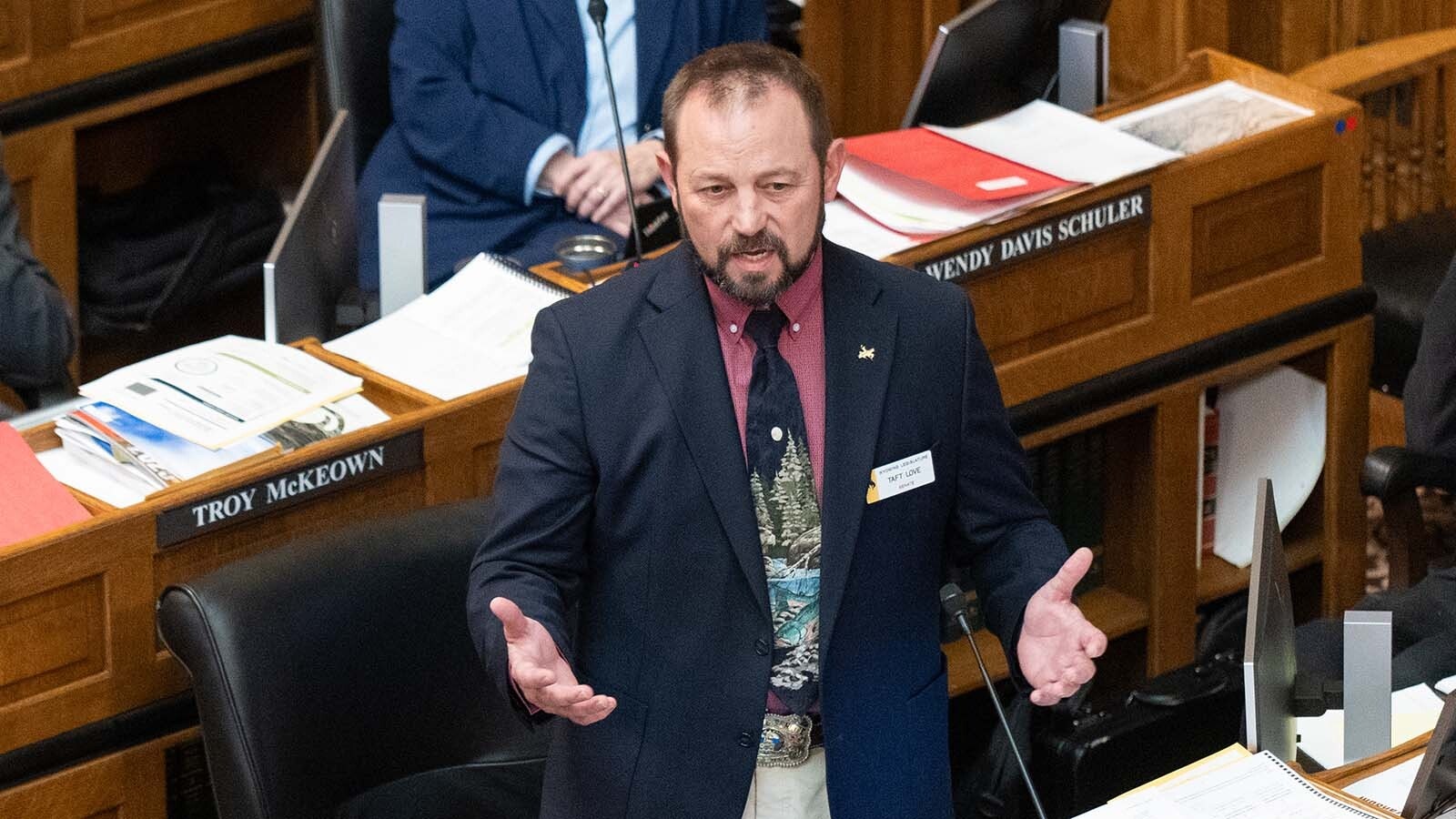BOZEMAN, Mont. — Wyoming Gov. Mark Gordon on Thursday called for states to embrace innovation over regulation and prepare for what’s on the "digital horizon" in energy project financing, telling a crowd of energy industry insiders that federal permitting requirements are holding up development.
"We're not going into the future by regulating ourselves, we're going to innovate," Gordon said at the Big Sky Bright Future Economic Summit, put on by the Montana Chamber of Commerce, where he pitched Wyoming's development of a state-backed stablecoin as a potential "game-changer" for financing energy projects.
"All of this digital horizon is incredible," Gordon said, introducing Wyoming’s first-of-its-kind state-backed stablecoin token.
“We hope it's going to be really important for small banks, community banks, because they can be able to take advantage of it. There's no transaction fee,” he said in a follow-up interview.
“We’re first out of the chute on this,” added Gordon’s policy director, Randall Luthi, after the panel discussion, which included a range of criticisms aimed at federal regulations and the Biden Administration.
The complaints touched on everything from hurricane recovery in Puerto Rico to worries about China winning the AI arms race to Wyoming’s journey to break ground on the TerraPower nuclear power plant in Kemmerer.

Shovel Ready?
Gordon shared examples of what he called "absolutely ridiculous" federal permitting requirements, including the TerraPower project in Kemmerer that required several different federal permits from agencies including the Nuclear Regulatory Commission, Environmental Protection Agency and Bureau of Land Management.
The permits were so restrictive that project officials couldn't even sink a ceremonial shovel into the ground during the groundbreaking ceremony without environmental approval, Gordon told the Bozeman crowd.
"We had to do an analysis so that we could break ground because we didn't want to put a shovel in the ground where they were going to build it for their plant," Gordon said. "That is absolutely ridiculous."
When asked in a follow-up interview to clarify, Gordon confirmed the restriction was literal: "They had to bring it in," he said, referring to dirt that had to be imported for the ceremony because they couldn't disturb the actual ground.
Gordon contrasted modern permitting delays with World War II-era efficiency, noting that it took eight years of environmental scoping before a coal export terminal at Longview, Washington, ultimately failed — while a smelter was built in the same state during World War II in just a year and a half after only three months of preparation.
Growing Demands
Gordon highlighted the massive energy demands coming from data centers, including one in Cheyenne that projects it will use more power than the entire state of Wyoming. At the same time, data centers are finding ways to use much less water, he said, noting how one center will only draw water for its six bathrooms.
The governor also emphasized the need for more coal development, telling the audience that coal companies need to bid more aggressively on federal leases.
"We need to get coal leasing out there and coal companies need to bid more, because that future is bright," said Gordon, who also updated his pitch for supporting “all of the above” when it comes to energy development.
“It really is the best of the above,” said Gordon, who then singled out wind.
"Wind has a place, that's true. But if you look at what it's done to some of our landscapes, and it was all driven by tax policy and it all drove the grid into a situation that they really couldn't deal with particularly well, at the same time that we were putting our foot on the neck of coal,” said Gordon.
Gordon also expressed frustration about regional energy politics, saying Wyoming has been "blocked to the west by the West Coast. Some would call it ‘the left coast,’" noting that states like New Hampshire burn fuel oil because they can't get natural gas through New York or electricity through Maine.
"This is stupid for our country," Gordon said. "We need to figure out we have energy abundance here, and we really need to make sure that we can share it."
Other Governors Weigh In
Gordon shared the stage with Montana Gov. Greg Gianforte, Nebraska Gov. Jim Pillen and Puerto Rico Gov. Jenniffer González-Colón, who each outlined their own energy challenges and priorities.
Gianforte, who moderated the panel, opened by asserting that "states can make better decisions related to energy than bureaucrats 2,000 miles away."
He also touted Montana's "entrepreneur magnet" law signed in 2021, which eliminates taxes on the sale of corporate stock for businesses headquartered in Montana, designed to attract entrepreneurs to "lay golden W-2 eggs" in the state.
Pillen warned about international competition in energy development, particularly in coal, nuclear and artificial intelligence capabilities.
"Our foreign adversaries are going crazy with nuclear power. They are doing coal plants in China every other week," Pillen said. "We have to win the electricity game. Because if we don't, we don't win artificial intelligence and our foreign adversaries win. Democracy depends on it."
The Nebraska governor noted his state's unique position as the only state served entirely by publicly owned utilities, not private operators. The state’s portfolio breaks down to 35 percent wind, around 20 percent nuclear and 40 percent coal generation.
Pillen called the permitting process "ass backwards" and urged regulators to "get off the team" if they view themselves as bureaucrats rather than public servants.
González-Colón detailed Puerto Rico's struggles with electrical reliability, noting the island experiences an average of 27 hours of service interruptions annually compared to about two hours for the mainland U.S.
She said 43 percent of Puerto Rico's economy depends on manufacturing that requires reliable baseload power, criticizing the previous federal administration for trying to use the island as "a laboratory for renewables."
"I don't have anything against renewables, but when you get an island that depends on generation... you cannot run a pharmaceutical company 24/7" on batteries alone, González-Colón said.
“62 percent of our generation in Puerto Rico is petroleum. And then just 24 percent in LNG (Liquified Natural Gas),” said González-Colón. "The people on the island are paying higher prices for their electricity.”
David Madison can be reached at david@cowboystatedaily.com.





